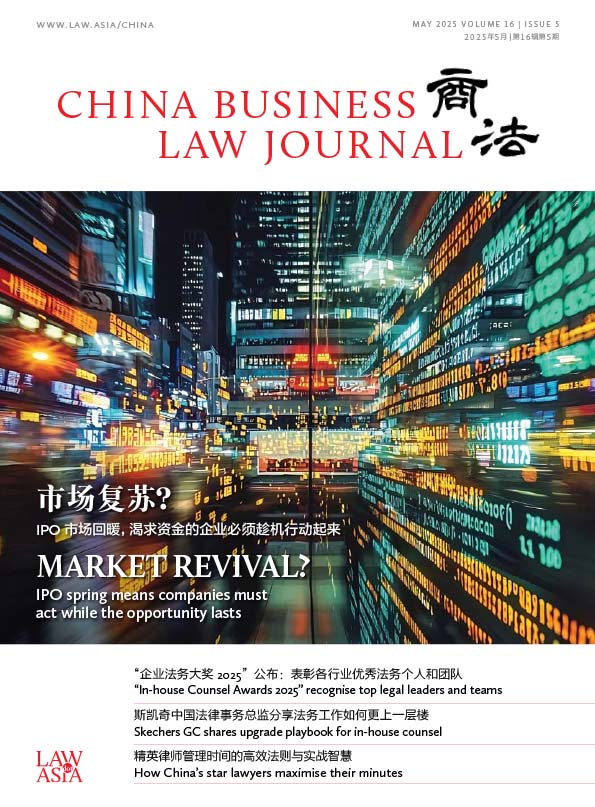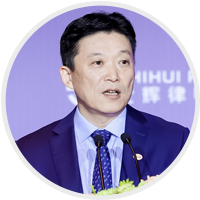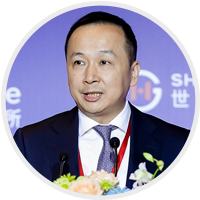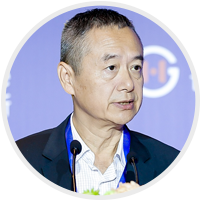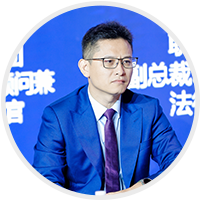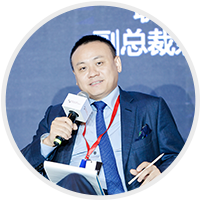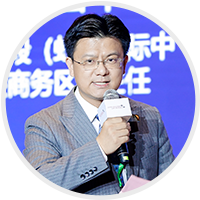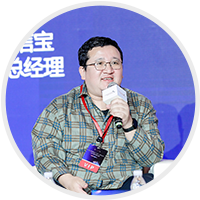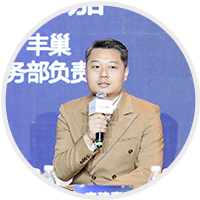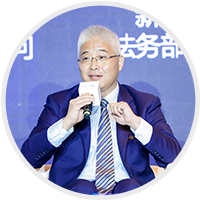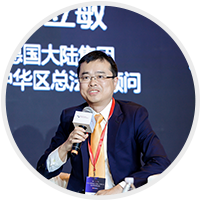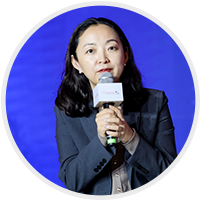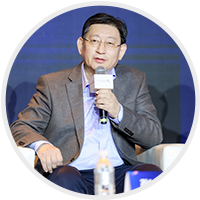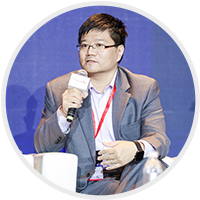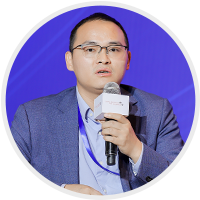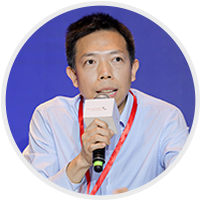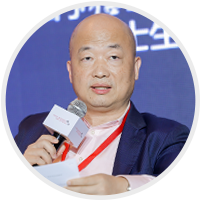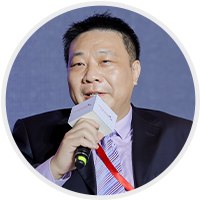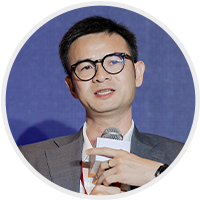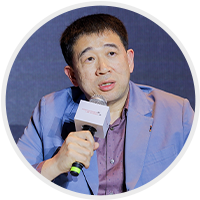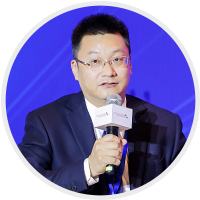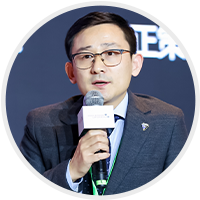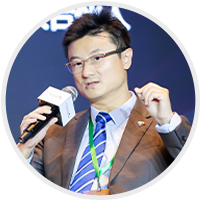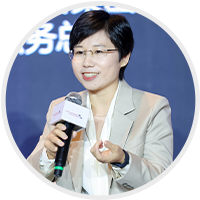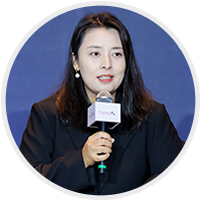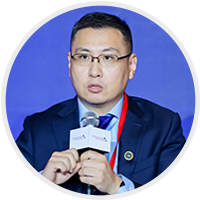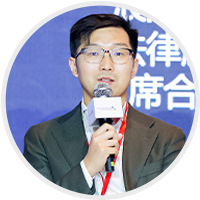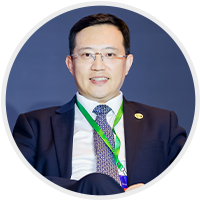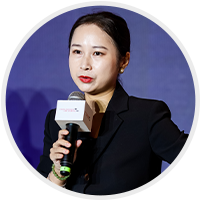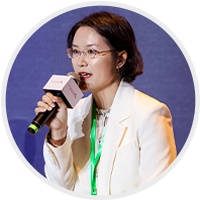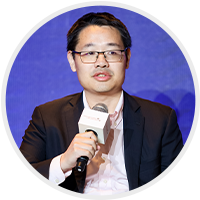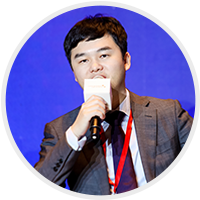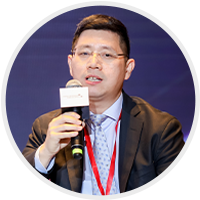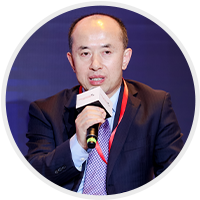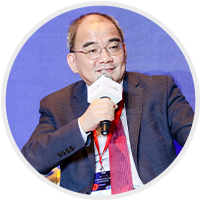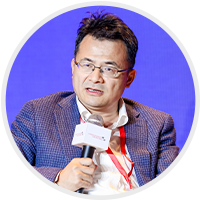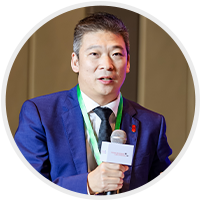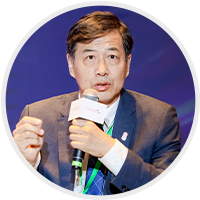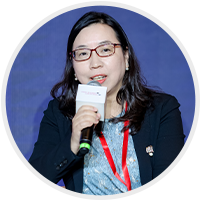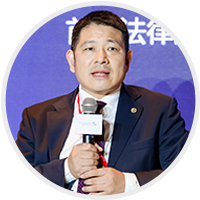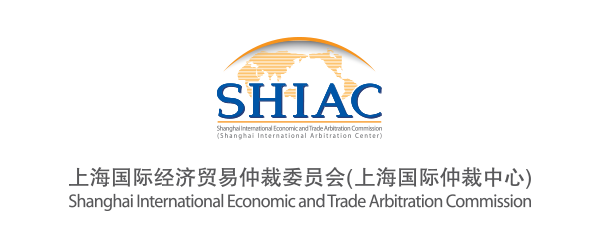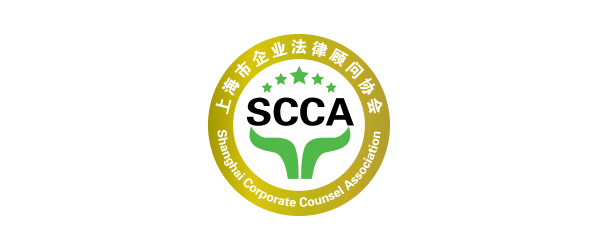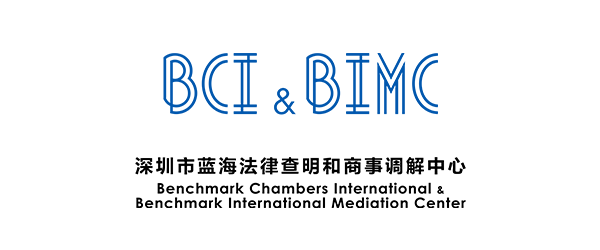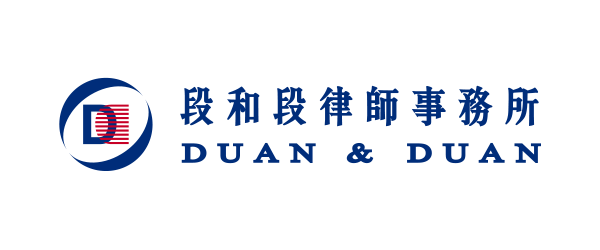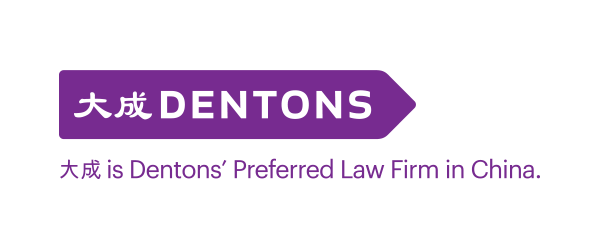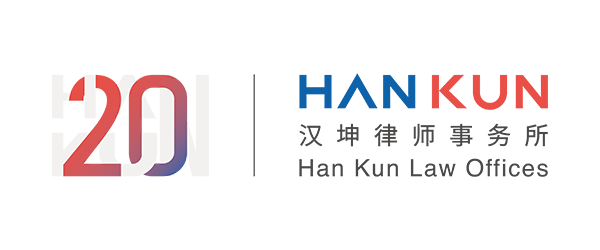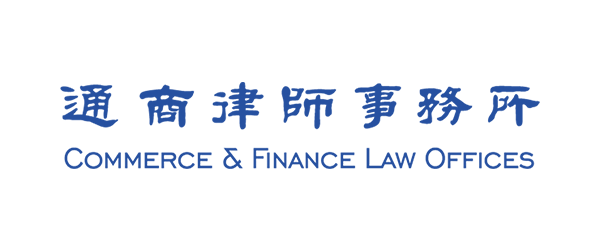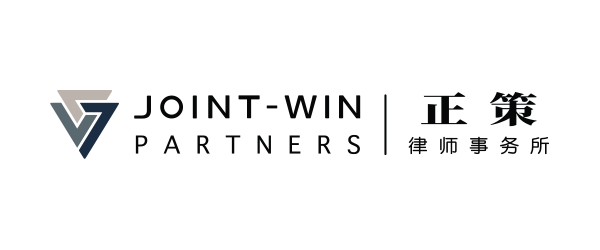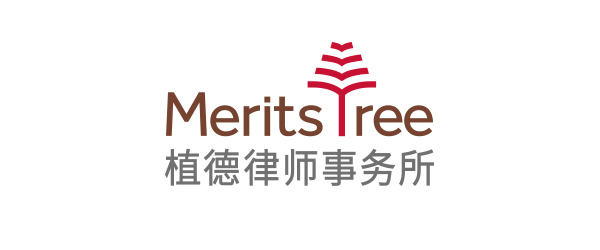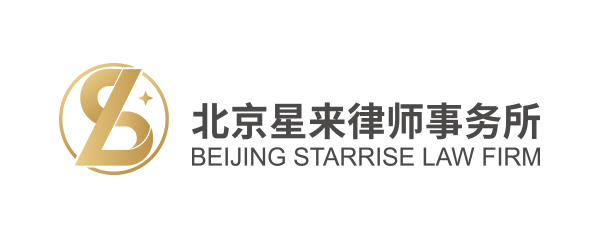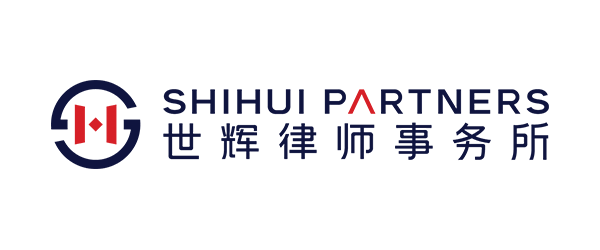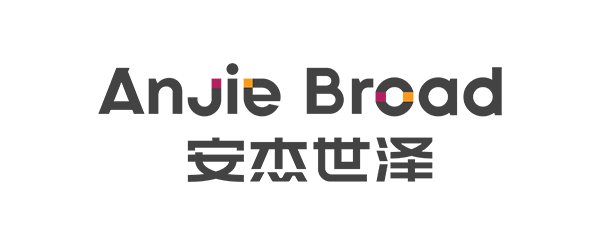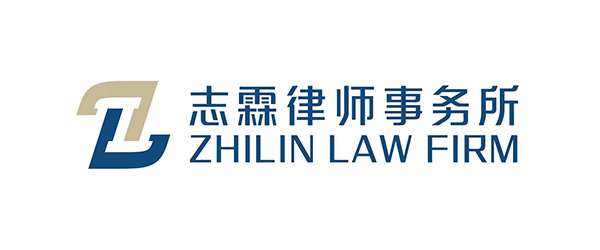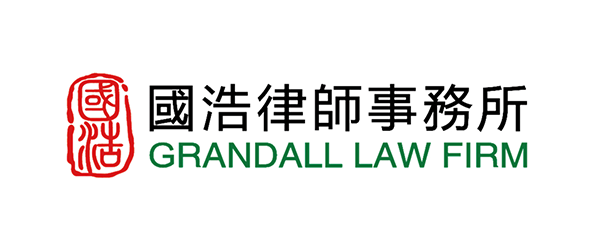CBLJ Forum Shanghai 2024
Shelter from the rain
Against a capricious international business environment, outbound Chinese companies are finding the way forward precarious. Data peaks on the chart of top compliance concerns across every industry. Heavyweight legislative moves, such as the implementation of the new Company Law, are shaking up the legal sector. Artificial intelligence is setting out to change how society works, but great opportunities inevitably come with considerable risks.
To shed light on these issues and others defining our era, on 1 November 2024, China Business Law Journal hosted the CBLJ Forum with the theme of “seizing emerging opportunity, managing global risk” at the Grand Hyatt Shanghai. The full day event featured more than 90 speakers sharing their insights on stage across 13 panel sessions.
It was the first large-scale offline event hosted by China Business Law Journal since the last forum in 2019, which took place at the same venue. Due to typhoon Kong-rey, Shanghai had been assaulted by heavy wind and rainfall since the day before the summit, with a yellow rainstorm alert – the second-highest alert of four – being issued at one point. This, however, did little to damp the enthusiasm of more than 500 senior executives and general counsel arriving from all over the country. Beyond the venue, more than 160,000 viewers tuned into the event’s live broadcast.
Ma Yi
In his opening address, Ma Yi, deputy director of the Shanghai International Arbitration Centre, said Chinese companies had initiated another round of globalisation while “abiding by the economic logic of minimum cost, maximum efficiency, and sustainable profitability”.
“Without question, ‘going out’ is a key step for companies to up their game, but it also means that they will be challenged by more complicated and unfamiliar types of legal issues,” he said.
Kevin Shao
Kevin Shao, president of the Shanghai Bar Association, described the current era as one packed with both trials and rewards. The globaleconomic shift, technological leaps and fast-paced reconfig-uration of international rules open up innumerable possibilities, but companies also shoulder greater compliance pressure than ever before.
“In these highly complex and volatile political and economic environments, every corporate decision needs to be made with precision and every obstacle to compliance must be properly addressed,” he said.
He called upon the attendants to build a more open and inclusive ecosystem for business and law, giving full play to the strengths of legal practitioners.
Li Jin
Li Jin, deputy director of the Shanghai Corporate Counsel Association, spoke of the difficulties arising from protectionism and politicised economies. He said he believed that in-house counsel served as “the bridge between law and business” and were “among the greatest talents in terms of resolving business risks and improving market competitiveness”.
“How to deal with external impact, allowing for the company’s smooth sailing, or even faster sailing, amid the storm is a particularly critical puzzle for corporate managers, especially for legal counsel, to solve,” he said.
Concluding his speech, Li voiced his expectations and blessings for the forum, with a wish that legal professionals from all sectors take the opportunity to strengthen their bond, and to apply what they hear, think and learn from the event to their daily practice.
The forum then transitioned to the main event of the day – panel discussions. Morning sessions included: “Challenges and solutions for Chinese enterprises going global”, moderated by Jincheng Tongda & Neal; “Midas touch: Enhancing data value and comprehensive compliance”, moderated by Duan & Duan Law Firm; “Managing cross-border risks and global dispute resolution strategies”, moderated by Dacheng Law Offices; and “How fintech players can weather the storm of intensive regulation”, moderated by Han Kun Law Offices.
Afternoon sessions were split into three workshops. In workshop 1, the sessions were: “What’s trending in securities compliance and litigation”, moderated by Commerce & Finance Law Offices; “Navigating criminal risks: identify, anticipate and strategise”, moderated by Starrise Law Firm; and “How to leverage the punitive damages system for IP protection”, moderated by Zhilin Law Firm.
In workshop 2, the sessions were “Practical responses to the new Company Law”, moderated by Joint-win Law Firm; “Compliance requirements for AI in large enterprises”, moderated by Shihui Partners; and “Facing 2030: Challenges and opportunities in corporate ESG and sustainable development”, moderated by Hui Ye Law Firm.
In workshop 3, the sessions were: “Double-edged sword for pharmaceutical companies going global”, moderated by Merits & Tree Law Offices; “Exploring key issues in antitrust litigation and compliance practices”, moderated by AnJie Broad; and “Lasting success: Strategic design and structural optimisation for family business succession”, moderated by Grandall Law Firm.
Tan Zhen, vice president and general counsel at Sony (China), summed up the day’s topics as “trendy, practical, and of great market concern”. He said the event brought together the best practices of market-leading companies, and the solution-driven discussions were immensely helpful to in-house counsel.
Gao Huandong, vice president and general counsel (China) at Lenovo Group, complimented the form of the forum. The purpose of such events lay in more than listening to keynote speeches or panel discussions, he said. “Equally important is for peers to come together, communicate and network.” He noted that the best advantage of a whole-day event was that attendants could make full use of the tea breaks, lunch and dinner to thoroughly engage with one another.
He also praised the division of three workshops for effectively covering the issues most relevant to different sectors, companies and practice areas, greatly enriching the content on offer.
Special Acknowledgement
Co-organizers: SHIAC, SCCA, BCI & BIMC
Media Partners: Sina Finance | Special Partner: LAW+
Platinum Sponsors: Jincheng Tongda & Neal; Duan & Duan Law Firm; Dacheng Law Offices; Han Kun Law Offices
Sponsors: Commerce & Finance Law Offices; Starrise Law Firm; Zhilin Law Firm; Joint-Win Partners; Shihui Partners; Hui Ye Law Firm; Merits & Tree Law Offices; AnJie Broad; Grandall Law Firm
Morning Session
Challenges and solutions for Chinese enterprises going global

Jincheng Tongda & Neal panellists
Sha Haitao, Senior Partner; Zhang Yunyan, Senior Partner
Institution/Enterprise panellists
Steven Cao, general counsel & chief compliance officer, Syngenta China
Gao Huandong, vice president & general counsel (China), Lenovo Group;
Han Ting, council chairwoman, Benchmark Chambers International & Benchmark International Mediation Centre
Xie Chenyang, vice president & chief legal officer, Foxconn Industrial Internet
Leslie Zhang, vice president & chief legal officer, United Energy Group
Zhang Zheng, China committee member, International Union of Notaries (UNIL)
“If the direction was wrong, all our efforts would be for naught,” said co-host Zhang Yunyan, emphasising the importance of outbound strategies.
Steven Cao
Of the greatest challenges facing outbound Chinese businesses, Steven Cao said that, rather than the manner of “going out”, it is the long-term stability and continued revenue growth after overseas expansion that truly matter. “We should focus on the long-term development after the initial investment or merger, which in turn gives us a better idea if it was the right decision to make,” he said.
Echoing this, Gao Huandong said the real challenge “is not at the merger itself, but the integration afterwards”. Culture, value, organisational structure and talent are among the key elements that require integrating after a massive merger. Gao cautioned that only with a sound integration process could a combined entity move on with steadiness and fortitude.
Leslie Zhang
Regarding a surge in cross-border disputes, Leslie Zhang cautioned that “going out” could never be smooth sailing all the way. “One must carefully consider if going out is worthwhile for the company,” he said. “Do not focus too much on making the most strategic deals, but first ensure that the business logic is sound.” He said outbound companies should establish dynamic monitoring systems and engage dispute resolution lawyers early to help formulate dispute strategies.
On the manner of dispute resolution, Han Ting noted a functional alignment among litigation, arbitration and mediation, which complement one another. “Many parties to a dispute are not familiar with the differences between them, so they very much rely on lawyers, in-house counsel and dispute institutions to jointly provide a full set of solutions,” she said.
Zhang Yunyan
According to Zhang Zheng, sharing trends in notarisation, the UNIL is compiling an international notarial code in which China’s committee also participates. Such a move can “raise China’s voice in the field of international notarisation which, in turn, to the extent possible, can be applied to assist outbound Chinese companies,” said Zhang.
Cross-border data compliance is a top concern for all large-scale multinational companies. Xie Chenyang suggested that localised deployment of servers is a first step for breaking through the barriers. He further shared that, at Foxconn, the processing of sensitive information, such as human resources data, has been changed from being pooled at the headquarters to management at local branches.
Capping off the session, Sha Haitao expressed his best wishes for outbound companies. “I look forward to seeing more Chinese companies go not just out, but also far, and fly up, up and away,” he said.
Photos
Midas touch: Enhancing data value and compliance

Duan & Duan Law Firm panellists
Sun Yu, director of global management committee and equity partner; Guo Guozhong, director of Shanghai (Hongqiao international Central Business District) branch; Gao Yaping, equity partner and director of data compliance special committee
Institution/Enterprise panellists
Hong Guang, vice general manager, Qixin.com
Li Qiongjia, legal head, Hive Box
Sun Zhenpeng, general manager of Asia-Pacific, EXIN
Xie Dong, chief legal counsel of Greater China, Dyson
Guo Guozhong
Moderator Guo Guozhong began by noting that data compliance had brought both opportunities and risks to legal practitioners.
In response to the theme, Hong Guang pointed out that “enhancing data value” was to make good use of data in various scenarios, while “comprehensive compliance” was to ensure data quality and compliance. He shared his team’s data strategy to build data based on the DIKI (data, information, knowledge, intelligence) framework, provide flexible and diversified services to meet customers’ needs of data flow, and to understand the business in depth to realise the application value of data.
Hong Guang
Li Qiongjia agreed that data compliance should accommodate both consumer needs and business goals. In his sharing of the execution challenges confronting Hive Box in face recognition and real-name authentication operations, he said consumers’ needs “may have nothing to do with the law, but as long as there is a demand from the consumers, it may turn out to be a compliance item”.
Referring to the theme of “Midas touch”, Sun Zhenpeng highlighted the significance of digital literacy in the fourth industrial revolution, where data is the productive force. Regarding the current buzz about digital transformation, he said it was the business model that needed to be transformed, to seek profit and agility while ensuring security.
Li Qiongjia
Sun was echoed by Xie Dong. “[The company’s leadership] now have a whole new understanding of the Chinese market, especially digitisation and intelligence of the products, as well as how the Chinese consumers embraced new features and new demands.” For multinational corporations, well-aligned and compliant data flows are also influenced by geopolitics that create data barriers. This has posed sharper challenges for legal counsel to meet the requirements for data compliance and risk management while facilitating business opportunities.
Gao Yaping
Drawing on the EU’s compliance system, Sun Yu summarised the practice of data compliance as “digitally empowered, innovation-driven and globally laid out”.
Gao Yaping described data regulation as representing the “regulation of business”. Referring to country-specific regional jurisdictions, she suggested understanding global and Chinese regulatory logic in the context of the overall regulation of the EU’s General Data Protection Regulation (GDPR). She also highlighted the critical role of data protection officers (DPOs). Regarding data products listing and data resources listing, four key themes were summarised: subject compliance; technical compliance; algorithmic realisation compliance; and management system compliance.
Photos
Managing cross-border risks and global dispute resolution strategies

Dacheng Law Offices panellists
Summit Chen, director and vice chair of the Dacheng China Advisory Committee; John Zou, senior partner; Wu Ming, senior partner
Institution/Enterprise panellists
Richard Nie, general counsel, Schaeffler Greater China
Helen Gu, general counsel, Sina Corporation
Wang Weijun, secretary general, Shanghai International Arbitration Centre
Zhang Ran, general counsel, Hilong Group
Xie Limin, general counsel, Continental
Opening speaker Zhang Ran said companies going global must navigate escalating market barriers that are driven by geopolitical and economic shifts. He advised viewing issues through the internal perspectives of the target countries, and underscored the significance of contracts in resolving disputes. Zhang recommended opting for Hong Kong or Singapore’s legal and arbitration frameworks in contracts to more effectively manage cross-border disputes.
Gu Haiyan
Gu Haiyan highlighted the challenges internet companies face with business models that span multiple jurisdictions, often resulting in disputes and arbitration. “Managing arbitration and litigation cases across five to six global jurisdictions presents significant challenges, particularly for relatively young legal teams,” she said. “These include co-ordinating legal teams across different time zones.”
Richard Nie
Richard Nie offered insights from the perspective of actual users and corporate management regarding the global operations of multinational enterprises, focusing on “balancing cost, quality and speed”. In comprehensive risk management, she emphasised that the goal for management and legal teams was to “achieve maximum business objectives with minimal control costs”.
Xie Limin noted that most foreign-related arbitration cases select Chinese law as the governing law. “The acceptance of Chinese law is currently very high,” he said. “Our economic outreach is accompanied by the dissemination of Chinese legal principles. The embrace of these legal frameworks correlates strongly with our economic and legal culture. Going global is not just a new trend and opportunity for China’s economy, but also a pathway for Chinese law to make its mark worldwide.”
Xie Limin
Chinese enterprises face a range of risks when investing overseas, including geopolitical, commercial, cultural and operational compliance challenges. In international arbitration, the risk of annulment is often overlooked. Wu Ming says that although arbitration decisions are binding on the parties involved, there can still be challenges with annulment or non-recognition and enforcement of the awards, even after a victory in a case.
Regarding the cross-border enforcement of Chinese court judgments, John Zou mentioned that although there were well-known legal bases for enforcement in the Mutual Legal Assistance Treaty and the principle of reciprocity, there was uncertainty and complexity in international legal co-operation.
However, he pointed out that “in common law jurisdictions, Chinese court judgments can be enforced through common law procedures”, which provide a relatively certain pathway for cross-border enforcement.
Wang Weijun said the SHIAC, in terms of geographic coverage, numbers and disputed amounts, is comparable to internationally renowned arbitration institutions. She said that “beyond arbitration and litigation, integrating various dispute resolution methods is essential. Internationally, Chinese arbitration institutions, including SHIAC, are exploring the ‘mediation-arbitration-mediation’ approach.”
Photos
Weathering the fintech regulation storm

Han Kun Law Offices panellists
Quan Wei, partner; Liao Kanxi, partner; Li Xun
Institution/Enterprise panellists
Cao Yanhua, risk control and compliance director, Greenland Group
Fang Mei, legal director, Dewu APP
Wang Cheng, general counsel, Express (Hangzhou) Technology
Zhang Yunfeng, vice-president, Shanghai Federation of Industrial Economics
From 10 years of internet finance to today’s fintech, Han Kun Law Offices’ Li Xun led panellists on a discission of the stringent regulations for online operations. The issue of peer-to-peer (P2P) lending particularly struck a chord.
Fang Mei
Fang Mei said tech companies trying to launch digital products should distinguish whether users’ needs are real or fake. Fang said while customers have an actual need for wealth management products, she considered P2P, crowdfunding and mutual insurance as fake needs. “The main problem with these products is that companies are not the ones that control [the associated] financial risks, but rather users are the ones that have to manage it,” she said, adding customers are often not equipped to handle risks before, during and after obtaining a loan via P2P platforms.
Amid the evolving development of fintech, China is paying more attention to consumer rights protection. Cao Yanhua said the P2P sector was particularly concerned about collecting users’ data because violators now face heavier fines.
Cao Yanhua
For example, in an arbitration case involving a wage dispute, a bank was fined RMB4.5 million (USD615,000) because the person involved did not authorise the bank to provide his salary records as evidence. P2P platforms are also concerned about practices surrounding debt collection. Although there are clear guidelines, companies might be slapped with complaints by regulators if debtors trigger disputes with agents and file complaints.
Zhang Yunfeng
Zhang Yunfeng suggested future P2P transactions should remain small to avoid risk; the same goes for crowdfunding. Legal departments are also advised to balance innovation, regulation and risk control when developing fintech products. He said, in-house counsel or companies should be mindful of the regulatory “red line” and not to cross it when launching financial technology products. Zhang added that counsel should not lightly prohibit a product from its launch to avoid risk.
“Give a score to how important it is for economic development, and give another score for how much risk the product involves; [in-house counsel should] combine the two scores to make a comprehensive judgement.”
Wang Cheng
Wang Cheng said that although China has strict regulations for fintech players, it has continually opened up to foreign investment. “From the perspective of Chinese regulation, domestic and foreign companies are treated equally, and regulated in a fair and just manner, which is very encouraging for foreign organisations.”
Photos
Afternoon Session | Workshop 1
What’s trending in securities compliance and litigation

Commerce & Finance Law Offices panellist
Li Amin, partner
Institution/Enterprise panellists
Gong Yihui, head of dispute resolution at a leading automobile group
Wu Jian, deputy dean of graduate school, East China University of Political Science and Law
Joe Zhou, head of the legal and compliance department and compliance director, China International Capital Corporation
Chen Xu, general manager of legal audit department, Zhongtai Asset Management
Li Amin
In the area of securities compliance and litigation, shifts in market practices and the ongoing evolution of laws and regulations necessitate all stakeholders remaining highly adaptable and sensitive to change.
Li Amin pointed out that securities regulation has become much stricter in recent years, especially after the State Council issued nine guidelines for capital markets on 4 April 2024, emphasising comprehensive and rigorous oversight. This shift has created new challenges for intermediaries and listed companies across civil, criminal and administrative areas. Li noted that fines in the securities market surged in the first half of this year, surpassing the total for all of 2023, and underscoring the seriousness of the current regulatory environment.
Wu Jian
From a listed company perspective, Gong Yihui stressed the critical importance of disclosure and said that adhering to the principles of truthfulness, completeness and timeliness was essential. She highlighted a need to ensure the authenticity of financial data in significant transactions, particularly in mergers and acquisitions, and restructuring, to mitigate the risk of misrepresentation. Additionally, she emphasised that market capitalisation management should focus on enhancing company competitiveness, rather than resorting to illegal market manipulation practices.
Joe Zhou
Wu Jian examined differences in legal liability for misrepresentation, especially for stocks and bonds. He pointed out that the compensation logic for bond investors differed to that for stock investors. He emphasised the blurred lines between market manipulation and insider trading, which require further clarification. He called for stable judicial interpretations to prevent arbitrary law application.
In response to regulatory measures strengthening the responsibilities of intermediaries, Joe Zhou analysed the allocation of responsibility among intermediaries in cases of misrepresentation. He noted increased penalties for intermediaries and stressed the need for a reasonable determination of legal responsibility in bond misrepresentation cases. He suggested that courts should consider severity, transaction causation and loss determination, avoiding blanket judgments.
Chen Xu
Chen Xu discussed how rapidly changing judicial perspectives are impacting operational practices, using examples from disputes involving private equity funds. He said that legal compliance officers must actively adapt to these changes and update internal compliance policies accordingly. Regarding investor suitability, he pointed out that distribution organisations should strictly adhere to investors’ objectives to avoid legal liabilities from inappropriate recommendations.
Photos
Navigating criminal risks: identify, anticipate and strategise

Starrise Law Firm panellists
Wang Jun, director; Du Jiahong, director of civil and commercial legal service centre
Institution/Enterprise panellists
Cao Hui, general counsel, Silk Road Fund
Han Zhaoyi, chief compliance officer & general manager, China Communications Trading & Supply
Zhang Junxin, legal director, Liby Group
Zhou Wanli, associate professor and executive director of corporate compliance research centre, East China Normal University
Leo Zhou, vice president, General China, Suez NWS
Wang Jun
Wang Jun began the panel by emphasising that identifying criminal risk and strategising around it is crucial for sustainable business development. While criminal cases can be intimidating, understanding these risks can benefit the long-term growth of individuals and organisations. She noted many economic disputes were increasingly being treated as criminal cases, highlighting the blurring line between criminal and economic risks.
Han Zhaoyi illustrated how criminal risks can emerge within a business by discussing the recent case of a newly graduated employee caught forging an official seal. He argued that criminal risk prevention strategies should be tailored to specific job roles, clarifying the necessary training for different personnel. They should also be process-oriented, identifying essential procedures, and entity-specific, addressing proactive issues.
Legal practitioners must not regard criminal theory as an abstract concept. Any misconception needs to be addressed to enhance organisational risk management capabilities.
Zhang Junxin
Zhang Junxin, head of a 29-year-old legal department, stressed the importance of establishing a risk compliance checklist to address job-related crimes at their root. He said that many management-level job crimes may stem from broken psychological contracts between individuals and their companies.
He suggested businesses implement fair salary incentive systems, foster positive corporate culture, and create multi-layered prevention systems that include employee self-discipline, mechanism controls and reporting channels.
Leo Zhou
From the perspective of a foreign enterprise and with the theme of “Criminal matters are never trivial”, Leo Zhou highlighted the dual importance of ideological education and practical deterrence. He emphasised a need for targeted risk identification based on industry characteristics.
As an environmental protection company, his company pays particular attention to preventing environmental pollution crimes and conducts risk assessments across areas including business operations and asset flows.
Cao Hui
Cao Hui noted legal personnel must possess higher levels of knowledge and experience as Chinese companies expand globally. She said enterprises must comply with local laws and regulations when operating abroad, especially religious and common laws.
Initially, she believed criminal risk was not highly relevant to her business. She has since realised that some invested companies face not only prosecution but also parallel civil and criminal proceedings, making corporate governance and compliance management essential. Cao advised that focusing on criminal risk is a vital step in protecting one’s business. “The more cautious you are, the better; you can never be too careful,” she said.
Zhou Wanli provided an international perspective, analysing global trends in criminal risk. He discussed recent legal changes in the UK and US regarding the expansion of criminal liability for corporate executives. He said anti-corruption and money laundering were two of the primary compliance risks currently faced by companies.
He questioned whether whistleblower rewards in European and American companies, which have become more effective in recent years, might constitute obstruction of justice – a matter still under consideration.
Du Jiahong said enterprises should protect their governance and management through comprehensive risk prevention and control tools, integrating criminal, civil and compliance legal services. When discussing how businesses can manage overseas criminal risks, she referenced ISO standards and underscored the importance of the “plan, do, check, act” cycle. This approach enables enterprises to identify risks better and develop appropriate control measures.
Photos
How to leverage punitive damages system for IP protection

Zhilin Law Firm panellist
Qu Xiaofeng, senior consultant
Institution/Enterprise panellists
Li Jingjue, legal director, Huayi Brothers
Li Li, legal director of dispute resolution, Asia–Pacific, Hewlett-Packard
Lu Yuping, executive deputy director of special foreign company, Shanghai Corporate Counsel Association
Zhao Faxi, secretary of the board of directors and legal director, Shanghai Kunjek Handtools & Hardware
Zhou Hao, legal director of intellectual property rights, a multinational company
Li Jingjue discussed the challenges Huayi Brothers has faced in copyright law, particularly punitive damages. In an infringement case involving the The Ex-Files film series, Huayi Brothers encountered difficulties in determining the amount of damages.
Li Jingjue
The firm proposed two approaches: measuring infringing profits through differences in publicity costs, and supporting their damage claims by comparing unusual box office receipts. Although these ideas were ultimately not upheld by the court, they provided a reference for similar challenges in the future.
Li Li shared insights on the challenges of pursuing punitive damages in China from a technical rights perspective. She noted a patent infringement case involving auto parts in the Shanghai High People’s Court, where a plaintiff successfully obtained punitive damages of RMB12 million (USD1.6 million). This was achieved by the court accessing the defendant’s sales records and industry profit margin data, providing a useful reference for other companies in determining damage amounts.
Li Li
Zhao Faxi pointed out that even with a legal basis for punitive damages, practical challenges abound, such as evidence collection and communication. Each step is critical and often requires the support of a team of professional lawyers. He noted that, even when a court rules in favour of a plaintiff, relatively small damages may weaken the deterrent effect. He also cautioned that, in the US, defendants must remain vigilant against various plaintiff tactics.
Zhou Hao offered a broader perspective, arguing that greed and fear were core drivers of human behaviour, including all legal and commercial actions. He suggested that the punitive damages system should align with both legal and commercial realities to deter infringement more effectively. He emphasised the importance of learning from historical experience to inform current legal practice, advocating for adaptability as international conditions evolve. He said standards “will become better suited to our system and specific projects as the international situation changes”.
Qu Xiaofeng
Lu Yuping shared his experiences of working with Japanese enterprises, highlighting the importance of collaboration between legal departments and external lawyers. He said effective communication and co-operation can significantly enhance the protection of intellectual property, and discussed strategies for administrative and criminal rights protection to combat counterfeiting.
Roundtable moderator Qu Xiaofeng concluded that further exploration of the punitive damages system in China was necessary. He suggested studying successful foreign case law, and pointed out the need for in-house counsel departments to work closely with external law firms to effectively address each case.
Photos
Afternoon Session | Workshop 2
Practical responses to the new company law

Joint-Win Partners panellists
Wang Yongjie, senior partner and director of bankruptcy business centre; Liu Jun, senior partner and director of real estate business centre; Tang Meng, senior partner and director of corporate and commercial business centre
Institution/Enterprise panellists
Zeng Ni, director of legal and compliance department, Ping An Healthcare Diagnostics Centre
Vivian Ji, head of legal, Chanel China
Wei Ranying, legal director, Xiaomi Group
Zang Qiong, legal director, Anjuke Group
Ruby Zhou, founder and CEO, LAW+
Liu Jun
Liu Jun summarised that the registered capital payment system for companies had transitioned to a limited period payment for subscribed capital under China’s new Company Law. This contrasts to the previous situation of a more lenient period.
He analysed the fundamental reason behind this revision to be the changing economic environment of recent years. “The many drawbacks of the previous unconditional subscription system have now completely surfaced, with some blind and exorbitant subscriptions causing significant issues for transaction security and protection of creditors’ interests,” he said.
However, Liu also offered some criticisms, including that the requirement for immediate actual payment may conflict with the previous government advocacy of “swift transactions” or “entrepreneurial spirit”.
The change in the registered capital system had brought significant changes to the shareholder contribution liability system.
Wu Jian
Tang Meng suggested that in-house counsel should focus on article 49 (compensation for shareholders’ failure to contribute), article 43 (which stipulates that shareholders of limited liability companies must sign establishment agreements, specifying their respective responsibilities), article 88 and the original Company Law Judicial Interpretation III (before the new interpretation comes out; issues related to legal responsibilities after equity transfer), and article 54 (acceleration of maturity).
Zang Qiong shared her team’s practical experience. She said that, for group companies with a large number of subsidiaries, in-house counsel should focus on managing subsidiary registered capital and enhancing risk prevention. By establishing a digital platform, she has streamlined company information with the finance, legal and business teams and optimised management processes.
Zang Qiong
She also emphasised the crucial role of legal managers in company operations and capital management. “In the current situation, there will definitely be some business sectors facing liquidation and resale. At this time, if additional actual contributions to registered capital are made, it will certainly not be cost-effective,” she said. Through effective practices, her team reduced costs for the company, controlled legal risks, and ultimately gained recognition from management.
Wei Ranying discussed contribution responsibility issues from the perspectives of investors and entrepreneurs. She said the compensation responsibility for shareholders who had not fully paid their subscriptions needed to be mitigated through due diligence and reasonable shareholder agreements. During equity transfers, particular attention should be paid to the actual value assessment of non-cash contributions and the joint liability that may arise from unpaid contributions.
Wei Ranying
At the same time, she warned investment institutions to carefully consider assigning directors to portfolio companies. “The new Company Law significantly raises the requirements for director responsibilities. Unlike in the old law summarised by ‘fiduciary duties,’ the new law specifies very concrete responsibilities, including the duty to supervise actual subscription payments,” she said.
Vivian Ji discussed the governance challenges faced by foreign companies under the new Company Law, particularly the issues of board oversight functions and the employee director system. She said that board members of foreign e-companies may be distributed overseas, making it difficult to fulfil capital oversight duties. Additionally, the new law requires companies with more than 300 employees to establish employee directors, bringing new challenges to election procedures and decision-making authorities.
She said that companies had two core expectations for external lawyers: the speed of interpreting new laws to help in-house counsel report to management in a timely manner; and the granularity of industry understanding to provide differentiated advice based on companies’ characteristics. For some companies, brand reputation may be more critical than legal risks, and lawyers need to understand this difference.
Zeng Ni said legal work should be classified as technical and mechanistic. She said that legal departments need to establish a dynamic monitoring and interpretation mechanism for new regulations and establish an effective communication mechanism within their companies. “Each revision of the law is a small internal challenge for us. In fact, this small challenge can turn into a small project each time, or slowly expand into a long-term mechanistic project, allowing legal work to significantly change and improve its voice or leading position within the company.”
To effectively implement new regulations into company operations, Zeng suggested legal teams could collaborate with external lawyers to internalise legal requirements into standard operating procedures for company departments. She said the focus should be on making management aware of the value and risks of compliance, pre-positioning legal requirements into business processes rather than prompting them project by project.
Ruby Zhou, as founder of an in-house counsel training institution, emphasised that legal professionals should value soft skills in addition to their technical expertise. She said the introduction of new regulations presented an opportunity for legal professionals to demonstrate their value. Through effective communication and systematic development, a legal department’s influence and authority within their company can be enhanced, leading to personal growth and value. “While it is a job, is it possible for it to become a stepping stone for my personal growth?”
Photos
Compliance requirements for AI in large enterprises

Shihui Partners panellists
Wang Jiaying, partner; Lu Jing, partner
Institution/Enterprise panellists
Chen Yan, vice president, general counsel and chief compliance officer, KE.com
Fan Lei, general counsel and chief compliance officer at Inspur Electronic Information Industry
Xu Pu, deputy general manager of legal department at Sinochem International
Zhou Xin, deputy general manager of Huayu Yuandian
Chen Yan
Chen Yan spoke with enthusiasm about the fusion of law and artificial intelligence (AI). He said in-house counsel often use tools such as ChatGPT, Tongyi Farui, PowerLaw AI and Meta Sota.
Chen emphasised the potential of intelligent agents as AI tools that combine custom prompts with proprietary knowledge to address specific and specialised needs. These tools not only facilitate quick adoption but also demonstrate significant efficiency gains within certain domains.
He cited an example of his KE.com legal team creating an AI intelligent agent for business annual inspection and reporting, based on KE.com’s self-developed large language model (LLM), Bella, and external tool Kimi. While a particular task usually took experienced in-house counsel two to three hours to complete, the agent allowed a novice to complete the same task in just 30 minutes, greatly enhancing work efficiency.
On the compliance front, Chen stressed the importance of starting from the source by establishing an internal framework to ensure frequent communication with R&D and AI teams. He mentioned compliance considerations such as model selection, corpus sources, identification rules and contract disclosures. During LLM application, attention should be given to matters like model filing, qualifications, real-name authentication, and timely updates to external agreements.
“Under today’s Chinese data compliance regulations, drawing on effective content and specifics from GDPR [the EU’s General Data Protection Regulation], we internalise compliance work into a set of rules applicable to specific business scenarios,” said Chen.
Fan Lei underscored the importance of legal compliance in AI, from the perspectives of both internal legal personnel needs and company tools. He said understanding global regulations and international situations, especially in AI, was crucial. AI tools play a role in contract review and risk management, but attention should be paid to data security.
Fan Lei
He said AI could be used for systematic work and business risk analysis, stressing that risk management was not about eliminating risks but about balancing resources, strategies and risks. “In the development process of any enterprise, risks are constantly present, and the larger the enterprise the higher the risks,” said Fan. He said managers at different levels had different focuses, and responses to their inquiries from in-house counsel should be tailored to specific circumstances.
Fan said that, due to critical data exchanges with clients, suppliers and others, B2B enterprises were more concerned about data security and network security issues. During development, he focuses on data sources, intellectual property rights and data security.
Xu Pu said AI tools play a key role in legal research and specialised issue exploration. In emerging fields or situations with limited legal resources, AI searches can rapidly assist in gathering information and extracting core issues. In daily consultations, attention should be paid to maintaining the confidentiality of company information and providing advice only on general issues. When handling disputes, approaches such as case analysis may be used to provide support, but caution is needed when dealing with contract reviews and company business information.
She shared viewpoints from the user end, emphasising that companies should consider the application of AI technology based on their needs. While advanced AI technologies may not yet be widely used, companies can extract key information through big data analysis to support decision-making.
Xu said companies should consider the management efficiency and cost implications of AI, as well as the uncertainty of external regulatory environments. When deciding whether to adopt AI, different management models’ uncertainties should be weighed, especially in determining where AI can be applied within various business lines.
Zhou Xin summarised two major characteristics of generative AI: creativity and knowledge extraction. She said AI applications needed to be integrated with business scenarios to fully leverage their creative and knowledge processing abilities. Despite not being able to code, coming from a legal background she could use ChatGPT to quickly build table structures by writing circle orders for simple data analysis tasks and generating corresponding statistical analysis basic forms.
Zhou said AI was not a magical tool but a part of a complex engineering process. Understanding business needs and pain points deeply and utilising its capabilities in automatic execution, rule interpretation, and efficient processing are essential. She stressed the importance of having the right expectations for AI – not forcing its use but selecting appropriate tools based on business scenarios.
Lu Jing said Shihui Partners placed importance on AI development, having an in-house team of programmers dedicated to developing products against lawyers’ needs. What would traditionally take two interns three to five days could now be accomplished in minutes with the help of AI technology, with senior lawyers reviewing documents in half a day during the review stage.
In practice, Lu observed that “valuable data is non-compliant, and compliant data is valueless”. Therefore, he called for legal professionals to collectively promote legislative and regulatory reforms to address the contradiction between data compliance and value. Lu said China, being a treasure trove of data, should promote effective data utilisation while ensuring data security. Through reforms in legal frameworks and the establishment of guidelines, data can unleash its maximum potential, driving industry and AI development.
Photos
Facing 2030: What’s next for corporate ESG and sustainable development?

Hui Ye Law Firm panellists
Zhang Xiuxiu, partner; Wang Yu, partner; Tony Dong, partner
Institution/Enterprise panellists
Gui Shiqiao, senior partner & general manager, Anew Global Consulting
Riva Lin, senior legal counsel at business division, SGD Pharma
Liu Fang, vice president, chief legal counsel & chief compliance officer, Zeekr
Zhao Ruoyu, vice president & deputy general manager, Green Technology Bank
Zhang Xiuxiu
Kicking off the session, host Zhang Xiuxiu shed light on the importance of the year 2030, as highlighted in the theme. The Paris Agreement aims to limit global warming to less than 1.5°C by 2030, coinciding with China’s target year for its carbon peak.
Liu Fang introduced the audience to some strict EU emission standards, such as the corporate sustainability reporting directive. The directive requires companies to disclose both the environmental and social impacts of their corporate management, and the financial impact of environmental and climatic risks to themselves.
Liu Fang
“In the long run, asset management and systematisation of carbon data are indispensable for proper ESG and carbon dealings,” she said.
Gui Shiqiao summarised the opportunities from ESG as: social and environmental benefits; encouraging companies to look at not just short-term profit, but also long-term rewards and risks; and job and business opportunities.
Gui Shiqiao
Riva Lin said that to achieve their carbon objectives, companies should adopt multi-pronged strategies while ensuring that they are fine-tuned to their target markets. To illustrate her point, she shared the differences in glass recycling between countries. In Europe, a top-to-bottom platform called Close the Glass Loop exists to improve the recycling rate but in China glass packaging is often mixed with daily garbage, which increases recycling costs.
Wang Yu forecast that in the next five to 10 years, regulation would become more refined and list-based, chain management such as carbon footprint would pack more urgency, and environmental daily records, ledgers and other data would more closely resemble financial information.
“It comes down to rules at the terminal market,” he said. “The differences between domestic and Western rules here are too different to align anytime soon, but internal corporate management, when it comes to data and information, is more or less the same, being financialised.”
Zhao Ruoyu
Zhao Ruoyu said that, regardless of whether the main driver was sustainability development goals or ESG, one must first adopt integrated thinking with “carbon” at the core. She said green finance empowerment, in the context of China’s “double carbon” goals, was something to benefit every party.
Underlining this, she described a bankruptcy reorganisation case where a technology provider supplied technological prowess, the bankrupt company saw its project value grow due to the inclusion of carbon asset, lawyers provided legal support, and the Green Technology Bank helped design the carbon asset structure.
Dong Shen
Tony Dong cautioned certain scenarios might cause the validity of carbon emission rights contracts to be questioned – such as when on-site trading was not actually conducted on site, or when one of the parties had not completed qualification registration.
Dong said transformative investment – a recent hot issue – did not mean arbitrarily shutting down businesses traditionally considered to have high carbon emissions; instead, it meant improving carbon performance with long-term investment and equipment updating, among others tactics, thereby achieving sustained finance.
Photos
Afternoon Session | Workshop 3
Double-edged sword for pharmaceutical companies going global

Merits & Tree Law Offices panellists
Li Zeyu, partner; Jenny Li, partner
Institution/Enterprise panellists
Cheng Ming, chief legal officer, AIM Vaccine
Oak Ma, managing director, CBC Group
Yuan Jiali, head of legal and compliance, Duality Biotherapeutics
Xu Qian, deputy general manager, BGI Genomics
Xu Qian
The roundtable discussion centred on the pharmaceutical industry’s international expansion, featuring guests from diverse backgrounds sharing their insights and experiences.
Xu Qian discussed lessons learned from her firm’s overseas ventures, particularly on how to avoid cut-throat competition. She stressed “the importance of self-reliance in upstream tools to ensure the safety and control of midstream and downstream operations”. Additionally, she highlighted the critical need to prioritise intellectual property in international strategies, advising that appropriate patent strategies should be implemented before launching products or making other investments to effectively manage IP litigation abroad.
Iris Yuan pointed out that having good products and strong technology alone does not suffice for companies to expand internationally.
Yuan Jiali
“Many constraints, such as antitrust issues, domestic compliance filings and data risks including personal data are often overlooked by management in small and medium-sized enterprises,” said Yuan.
She argued for the necessity of effective communication about potential risks between legal teams and management, underpinned by solid contingency planning.
Jenny Li
Jenny Li said that companies should adopt a global reporting strategy from the outset, regardless of their plans for international expansion, by filing globally, or in both the US and China. This approach is critical for mitigating risks associated with future financing and development.
Additionally, keeping abreast of new international policies such as US data flow restrictions is essential for effectively adapting corporate structures.
During his investment ventures in Asia, Oak Ma discovered that “intellectual property litigation often involves know-how rather than just patents”. This requires legal teams to implement systemic preventative measures early on.
Oak Ma
Additionally, when dealing with market regulations in different countries, Chinese lawyers must not analyse issues solely through a Chinese perspective. They should integrate deeply “into the business” to ensure that legal advice resonates with business operations.
Cheng Ming echoed this view, emphasising that “the primary role of legal departments is to prevent risks, not to act as firefighters after problems arise”.
Cheng Ming
He added: “To effectively prevent risks, it is crucial to deeply understand the business operations, and not be isolated from them, avoiding a focus solely on legal or compliance issues.”
Li Zeyu
Li Zeyu noted that in the current geopolitical climate legal teams, typically working in middle or back-office functions, needed to proactively help companies anticipate potential risks. Based on these risk assessments, they should provide adjustment recommendations to business units to preemptively mitigate risks. He suggested that legal departments should transition from a supportive role to one that offers forward-looking and strategic advice.
Photos
Exploring key issues in antitrust litigation and compliance practices

AnJie Broad panellist
Song Ying, partner
Institution/Enterprise panellists
Cheng Guochuan, legal director, Chery Holding Group
Victor Shen, chief legal officer, Henkel
Tracy Wu, general legal counsel, Bausch & Lomb
Susan Xia, Greater China general counsel, Schneider Electric
Zhao Jin, deputy general manager of legal and compliance department, China Eastern Air
Kenneth Zhou, head of legal and compliance, SIG Group
Song Ying
AnJie Broad partner Song Ying led guests in a discussion on antitrust investigations and dawn raids.
Kenneth Zhou
Kenneth Zhou strongly advised companies with high market share to protect their rights upon facing antitrust investigations by the State Administration for Industry and Commerce.
“Ten years ago I worked in a top company which was investigated by the State Administration for Industry and Commerce (SAIC),” he said.
“Today, were I still working for them, I would suggest that the company consider carefully whether to challenge the investigation, so as to prevent an unfavourable situation where any subsequent lawsuit is jeopardised by predetermined judgment.”
Zhao Jin
Zhao Jin, who has extensive experience in dealing with US antitrust investigations, suggested that companies should require each employee to create a list that records all the files on their computers, especially those involving overseas information.
During dawn raids, when authorities request employees to provide information about the company, he said staff should notify in-house counsel of the information that has been collected by taking photos of the digital files, and staff should have prepared backups in advance.
Victor Shen
Victor Shen suggested that legal departments should suggest that management-level staff conduct mock dawn raids. They should also actively participate in their company’s business meetings so that lawyers can nip inappropriate or non-compliant proposals in the bud as soon as possible.
Susan Xia
Susan Xia said European companies attached importance to countering dawn raids, and many were equipped with company-level response measures. She advised in-house counsel to localise dawn raid countermeasures and turn legal jargon into business-friendly words.
On the topic of antitrust, Cheng Guochuan described the automotive sector as a “veteran” of antitrust as relevant guidelines have been available for more than a decade. Still, the emergence of telecoms technologies in vehicles has brought new challenges for the industry as automakers have to keep an eye on the patent pool operator who controls the patent licencing price for 4G and 5G patents.
Cheng Guochuan
Tracy Wu said antitrust regulations applied to the automotive industry were worth studying by legal professionals in the medical sector. For example, the role of middlemen in vertical monopoly agreements. She suggested that in-house counsel should clarify to their colleagues in other departments whether middlemen are bound by legal responsibilities and warn them about businesses that are not exempt from antitrust laws.
Photos
Lasting success: Strategic design and structural optimisation for family business succession

Grandall Law Firm panelists
Wang Xiaocheng, director of Wealth Management & Family Practice Committee and Legal Research Centre; Li Guoqi, associate; Zhou Tao, partner
Institution/Enterprise panellists
Hang Dongxia, vice chairman of the board, Junyao Medical Technology
Tian Na, operation director, Kunlun Trust
Zhou Xuan, managing director, wealth management division, CCB Trust
Ni Shoubin, professor and doctoral supervisor of Shanghai International College of Intellectual Property, Tongji University, chief legal counsel and research institute president, Green Technology Bank
Wang Xiaocheng
Wang Xiaocheng was the moderator of the panel. He pointed out that along with the economic advancement, high-net-worth individuals are focusing more on the wealth succession and management while creating wealth. He referred to Grandall’s product portfolio for family business succession, which observes the family constitution for strategic design and integrates major tools including family trust, charitable fund, incentive plan and testamentary trust.
From the perspective of private entrepreneurs, Hang Dongxia believes that the core of family wealth inheritance lies in the people, especially the competence of the second generation. She emphasised that the succession is highly systematic. In addition to the investment portfolio, it also involves benefit distribution, family relations and other strategic designs. Lawyers and service providers were suggested to offer full-package solutions from the macro point of view.
Tian Na
Li Guoqi also considered people as the core of inheritance, and therefore underscored the inheritance of spirit. He proposed to anchor the family spirit in the family constitution with the family trust and the incentive mechanism as supporting tools, so as to count on the people instead of the possessions.
With experience in integration of industry and finance, Tian Na believed the efforts of making the business bigger, stronger and better should outweigh the people. In summary, the structure of family wealth succession could be generalised into four aspects, namely, business development, personal relationship, financial stability and spiritual inheritance. She concluded that entrepreneurs should pass down to the second generation a sound system.
Zhou Tao
In response, Zhou Tao further asserted that the distributions of rights should also be carefully balanced, including the ownership, the control right and the right to yields. Advisably the family trust and the new Company Law stipulating “different rights on the same shares” offer an effective solution by well balancing the three rights.
Zhou Xuan
Zhou Xuan, on the other hand, interpreted the succession scheme as settling the relationship between people and wealth, as well as that between the people. While the family constitution and family charity were considered part of the soft structure, she believed the equity trust should serve as an excellent hardware tool. “And a combination of the two makes a complete succession scheme.” she said.
Ni Shoubin
Ni Shoubin affirmed the critical role of trusts in family wealth succession, thanks to its stability, privacy, flexibility and diversity. But he also pointed out that China’s current legal framework is insufficient to support the tools required in a succession scheme, “To meet the demands of family trust in China, the next step should be to improve the registration system, the tax payment system and other institutional provisions.”
To wrap up the session, Wang Xiaocheng added that a testamentary trust could be used as a backing tool for family wealth succession, as it serves to ensure the equity is finally transferred to the designated successor by appointing a natural person as the trustee.








